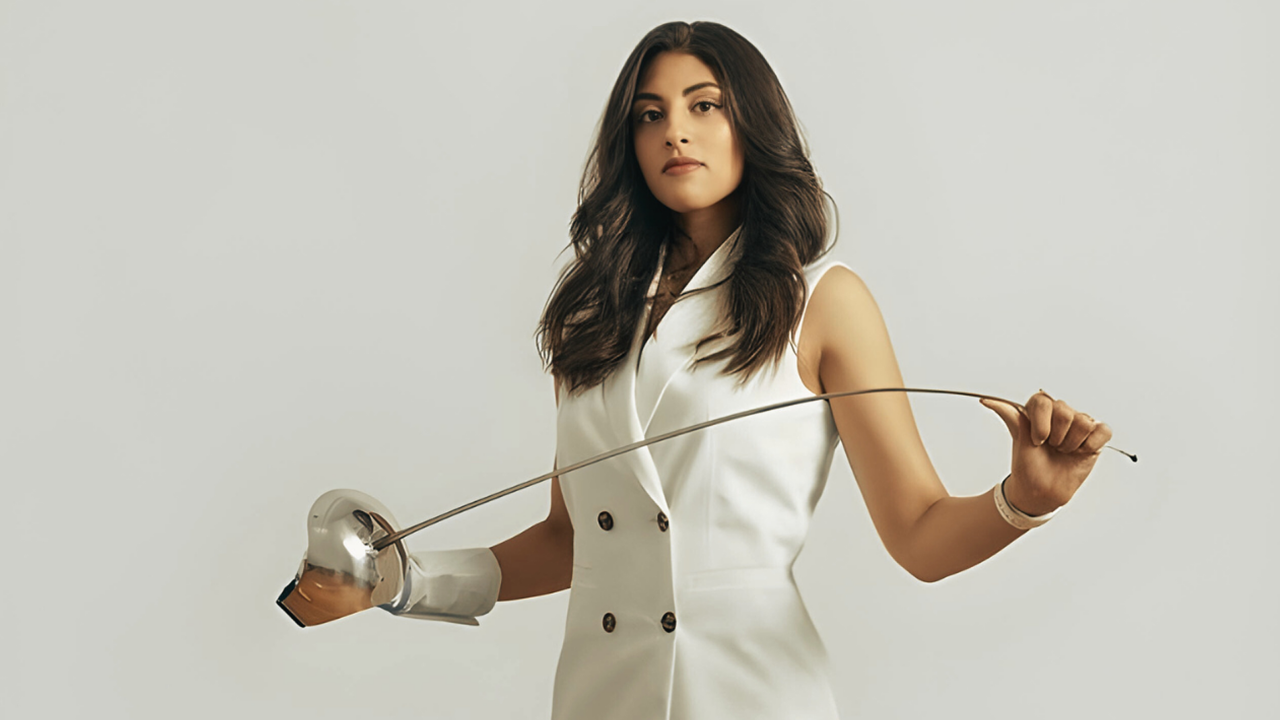The Egyptian fencer shocked the world when she revealed she was 7 months pregnant during competitions at the 2024 Olympic games. But the response to her bravery has highlighted a difficult truth.
Nada Hafez has just rewritten the rules of the game. At seven months pregnant, the Egyptian fencer is taking on the Paris 2024 Olympics, and with it, a maelstrom of scrutiny that underscores an uncomfortable truth: even in an era of unprecedented gender parity, women’s choices are still up for debate.
This year’s Olympics is a landmark for gender equality. Out of the 10,500 individuals taking part, 5250 are women, and 5250 are men. But as Hafez playfully revealed on social media, there were actually 10,501 athletes taking part at the Paris games. The fencer had been 7 months pregnant through each round of the competition, where she was eliminated in the last 16.
‘What appears to you as two players on the podium, there were actually three! It was me, my competitor, and my yet-to-come to our world little baby!’ Hafez posted on Instagram.
But while her surprise pregnancy has garnered stunned support, it’s also thrust Hafez into a vortex of judgement, revealing the deep-seated discomfort still triggered when women assert control over their own bodies.
Comments directed at Hafez have said much to the effect that she’s putting her child in danger for personal gain.
‘Risking the health of the child? Women do anything for […] attention’ said one Instagram user.
Hafez’s participation isn’t merely a sporting event; it’s a direct challenge to outdated norms. She’s showing the world that a woman’s capability isn’t defined by her reproductive status.
Her resolve to compete is a statement of autonomy, a declaration that women should not have to choose between their careers and their families. She’s thrust a spotlight on the often unspoken biases that permeate sport—and with it, society.
The negative reaction, then, isn’t about Hafez’s athletic prowess at all. It’s about the societal unease that emerges when women don’t bend to traditional expectations. Her choice isn’t just about competing; it’s about defying a blueprint that insists women should sideline their ambitions for motherhood.
Hafez is now part of a broader conversation about what it means to balance professional aspirations with personal life, and how society’s expectations can confine or liberate these goals.
Paris 2024 has become a major celebration of sporting mothers, with more women with children competing in this year’s Olympics and Paralympics than ever before. And yet society remains resistant to change when women push the envelope of what’s expected of their bodies.
At its most basic, the issue is about the persistent need to police and control women’s bodies. The global political landscape has only solidified this. Against the 2022 overturning of Roe v. Wade in the US, criticism of Hafez’ decision feels all the more ugly.
Those who argue that the fencer has been reckless, endangering herself and her unborn child, might do well to remember that the choices of a stranger – or anyone else for that matter – are none of our business.
And more than that, Hafez’s choice isn’t about her athletic capabilities or the physical boundaries that come with professional sport. In many ways, it’s an act of defiance in the face of doubt.
The same doubt that has meant we are only now – in 2024 – seeing the first Olympics where the same number of women are competing as men. The same doubt that means a woman competing whilst pregnant becomes headline news. The same doubt that has ensured sport is a male dominated space for centuries.
Hafez will be remembered, then, not just for her athletic achievements, but for her choice to do best by herself and her body, regardless of outside opinion.
Her news serves as a powerful reminder for women everywhere to claim their right to make choices without fear of judgement.

















